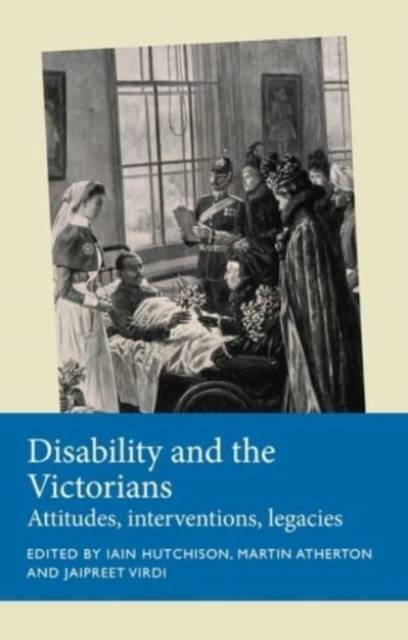
Door een staking bij bpost kan je online bestelling op dit moment iets langer onderweg zijn dan voorzien. Dringend iets nodig? Onze winkels ontvangen jou met open armen!
- Afhalen na 1 uur in een winkel met voorraad
- Gratis thuislevering in België vanaf € 30
- Ruim aanbod met 7 miljoen producten
Door een staking bij bpost kan je online bestelling op dit moment iets langer onderweg zijn dan voorzien. Dringend iets nodig? Onze winkels ontvangen jou met open armen!
- Afhalen na 1 uur in een winkel met voorraad
- Gratis thuislevering in België vanaf € 30
- Ruim aanbod met 7 miljoen producten
Zoeken
Disability and the Victorians
Attitudes, Interventions, Legacies
€ 61,45
+ 122 punten
Omschrijving
Disability and the Victorians brings together in one collection a range of topics, perspectives and experiences from the Victorian era that present a unique overview of the development and impact of attitudes and interventions towards those with impairments during this time. The collection also considers how the legacies of these actions can be seen to have continued throughout the twentieth century right up to the present day. Subjects addressed include deafness, blindness, language delay, substance dependency, imperialism and the representation of disabled characters in popular fiction. These varied topics illustrate how common themes can be found in how Victorian philanthropists and administrators responded to those under their care. Often character, morality and the chance to be restored to productivity and usefulness overrode medical need and this both influenced and reflected wider societal views of impairment and inability.
Specificaties
Betrokkenen
- Uitgeverij:
Inhoud
- Aantal bladzijden:
- 216
- Taal:
- Engels
- Reeks:
Eigenschappen
- Productcode (EAN):
- 9781526163929
- Verschijningsdatum:
- 12/07/2022
- Uitvoering:
- Paperback
- Formaat:
- Trade paperback (VS)
- Afmetingen:
- 140 mm x 216 mm
- Gewicht:
- 258 g

Alleen bij Standaard Boekhandel
+ 122 punten op je klantenkaart van Standaard Boekhandel
Beoordelingen
We publiceren alleen reviews die voldoen aan de voorwaarden voor reviews. Bekijk onze voorwaarden voor reviews.










